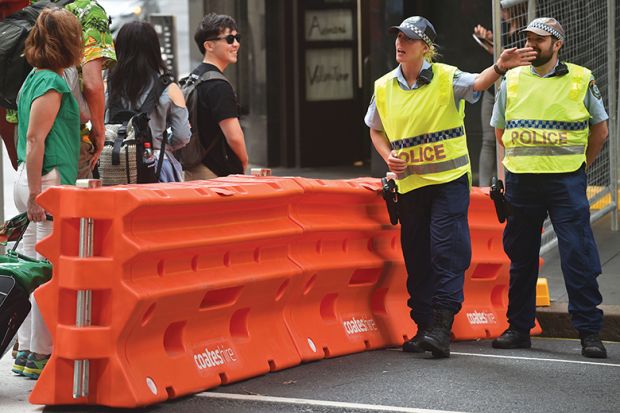Advice circulated to university research offices by Australia’s top security agency betrays the intelligence community’s mistrust for the sector, but insiders say it also indicates a newfound willingness to engage.
A four-page “Due diligence integrity tool”, distributed in December by the Australian Security Intelligence Organisation (Asio), offers guidance to help weigh the risks of collaborating with foreign entities. It includes brief checklists on subjects such as “know your partner”, “identify the risk” and “raise staff awareness”.
It follows last year’s release of detailed foreign interference guidelines overseen by a steering group including Asio deputy director general Heather Cook. The guidelines offer advice on who in universities should assume operational and executive responsibility for countering foreign interference and the questions that should guide their decisions, but they have failed to prevent security concerns from obstructing core university business.
Funding for 18 university research projects was withheld pending scrutiny by security agencies, with five applications ultimately being vetoed by outgoing minister Dan Tehan days before he left office. Meanwhile, security checks have delayed the granting of student visas to scores of foreign PhD applicants. The visas of two Chinese literary scholars who regularly visit Australia were revoked in September over adverse Asio security assessments.
Asio would not say whether it had issued its new advice because it believed that last year’s guidelines were inadequate or that universities had not implemented them sufficiently rigorously. The agency said it “regularly engages with Australian universities, tertiary institutions and academia on national security issues”, and the latest correspondence was intended to “complement” the guidelines.
While the new circular was far more “basic” than the guidelines, UNSW Sydney deputy vice-chancellor George Williams said it was useful because it demonstrated Asio’s perspective. “It’s another point of information for us as we try to deal with this very difficult problem of foreign interference,” said Professor Williams, a constitutional lawyer who now oversees planning and assurance at UNSW.
He said the document highlighted factors that universities might otherwise have paid less attention to, such as the corporate history and structure of prospective partners. “It’s useful to have a checklist like that,” Professor Williams said. “We may be fairly sophisticated in understanding the university sector, but we don’t deal with corporates as much.”
Sources said Asio trusts some universities more than others. A security expert, who asked not to be named, said there was “latent distrust and resentment on both sides”, while universities’ oversight of foreign collaboration risks was “mixed”.
The new circular was “good news”, reflecting the vow by recently appointed Asio director general Mike Burgess to make transparency a “fundamental principle” of his tenure, they said.
Professor Williams said Australia’s higher education sector was experiencing a “once-in-a-generation” interventionist shift, exemplified by the new foreign relations act, which allows the government to terminate universities’ overseas partnerships.
Other examples included new free speech legislation, the targeting of universities by the fair work ombudsman, the new integrity unit of the higher education regulator and Canberra’s decision to put universities under the scope of a critical infrastructure bill and a proposed federal anti-corruption agency.
Professor Williams said university sectors elsewhere should take note. “What tends to happen is that one or more countries get ahead of the curve, and then others tend to copy,” he said.
“Governments want to be seen to respond [to perceived security threats], and if there’s a good model out there they’ll take it off the shelf. It would be very wise for people in like countries to be paying close attention to Australia at the moment because it’s quite possible they’ll see similar regulation being rolled out.”
Register to continue
Why register?
- Registration is free and only takes a moment
- Once registered, you can read 3 articles a month
- Sign up for our newsletter
Subscribe
Or subscribe for unlimited access to:
- Unlimited access to news, views, insights & reviews
- Digital editions
- Digital access to THE’s university and college rankings analysis
Already registered or a current subscriber? Login









